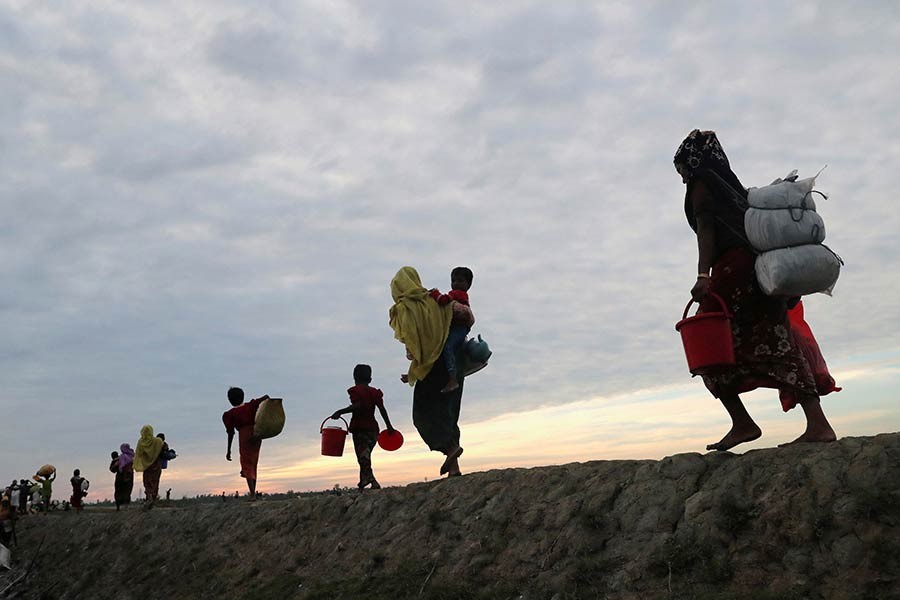Bangladesh and Myanmar have formed a 30-member Joint Working Group to oversee the repatriation of the Rohingyas refugees.
Delegations from both the countries sat in a meeting at the state guesthouse Meghna on Tuesday and formed the joint working group with 15 each from Bangladesh and Myanmar.
Foreign Minister AH Mahmood Ali conveyed the update to the media.
He said the next step of repatriation process will start soon and expressed satisfaction over the progress.
Both the countries agreed to form the joint working group after a meeting held in the city.
A delegation, led by Myanmar’s Permanent Secretary Myint Thu arrived here on Monday evening to attend the meeting.
Foreign Secretary M Shahidul Haque and his Myanmar counterpart Myint Thu led Bangladesh and Myanmar delegations respectively at the meeting.
The meeting started at 8:45 am at State guesthouse Meghna and ended at around 12:10 pm.
Representatives from relevant ministries, including Home and Disaster Management, attended the meeting.
As part of preparation for Tuesday's meeting, an inter-ministerial meeting was held at the Foreign Ministry on Sunday where the formation of working group and its structure were discussed.
Earlier, Bangladesh conveyed to the United Nations that a joint working group on Rohingya repatriation would soon be formed under the terms and conditions of the bilateral arrangement between Bangladesh and Myanmar signed on November 23.
UNB reported the joint working group was supposed to be in place within three weeks of signing the ‘Arrangement’ on return of Rohingyas.
A specific bilateral instrument (physical arrangement) for repatriation will be concluded in a speedy manner, officials said.
An estimated 655,000 Rohingya have crossed into Bangladesh fleeing violence in Myanmar’s Rakhine State since August 25, raising the total Rohingya population in Cox’s Bazar to 867,000, said the UN migration agency on Sunday.
It said the new arrivals are living in spontaneous settlements increasing the need for humanitarian assistance, including shelter, food, clean water, and sanitation.


